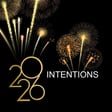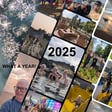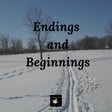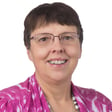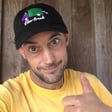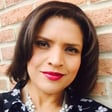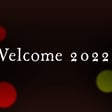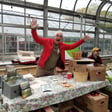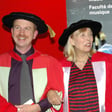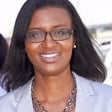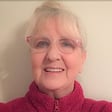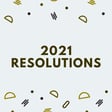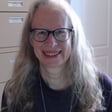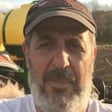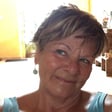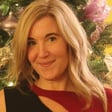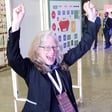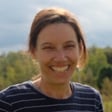Become a Creator today!Start creating today - Share your story with the world!
Start for free
00:00:00
00:00:01

Writing up the ancestors with Janice Hamilton
It was a joy to speak with journalist and genealogist Janice Hamilton about her ancestors, her recent book "Reinventing Themselves," and surprises she's discovered while researching and writing her family history.
Transcript
Introduction and Opening Advertisements
00:00:01
Speaker
Experience the Jared difference. The best prices on an amazing selection. Select your diamond gift today from hundreds of styles they're sure to love. Jared. Love brilliantly.
Host Introduction and Context
00:00:16
Speaker
My name is Tracey Ariel and I am an apologetically Canadian.
00:00:30
Speaker
Hello, Tracee Ariel here, and it is Wednesday, September 29th as I record this.
Discussion on Reconciliation and Canadian Tragedies
00:00:36
Speaker
And this week we are looking at history in three different ways, actually. First of all, in the early part, I'm just going to talk a little bit about I am working on a blog post about the federal day of reconciliation tomorrow.
00:00:54
Speaker
There's going to be a little bit of links to an interview I heard with Rosie on the CBC, Unreserved, and she did an interview with the justice who actually ran the Truth and Reconciliation Commission, and I think that's an interview that everyone should hear, so I'm going to put a link to that.
00:01:20
Speaker
I'm going to put a link to the actual Truth in Reconciliation report so that you can read it yourself and I think that that's something that every Canadian should read at least the summary and if not the whole report although it's super long just so you can get an idea of what is actually going on here and how many tragedies we're actually facing. I think that all of us learned a little bit more when Gord Downey spoke about a runaway from a reservation school but a residential school
00:01:47
Speaker
But we've learned a lot more since then. We've been discovering grave sites on these residential schools. I think it's clear that there were some bad actors and the next step is really finding out who they were and bringing them to justice if we can. And at least telling the stories of the people that they
00:02:05
Speaker
that we should have had within Canadian society. When I look at the loss that Canada all suffered because of this program, because of the decisions of these people, it's just horrific.
Interview Introduction: Janice Hamilton
00:02:20
Speaker
I also, on the interview today, I have a really exciting interview with Janice Hamilton. She is an extraordinary woman and she's been looking at some of her ancestors who lived between the two world wars and they were dealing with
00:02:33
Speaker
They were working with seances. I don't know if you've ever heard of that period of time when people were doing a lot of seances. I think when you consider we've only been through the COVID, we have modern Zoom and we have all sorts of ways of connecting with each other and making sure that we don't go through too much grief. We have had deaths because of COVID, but they haven't been as excruciating as the deaths during World War I and during the Spanish flu.
00:03:00
Speaker
We are a lot more connected to each other and even given all that, after a year and a half, it's really a bit wearing on all of us, I think.
Historical Seances and Photography
00:03:09
Speaker
So can you imagine if you went through four years of a world war where many of the young people aged from 18 to 23 in your family were sent over to war and either died or came back wounded?
00:03:23
Speaker
And then in 2018, they had the Spanish flu and that lasted for three years. So, and in that case, people actually in their communities saw the people die and they actually had trouble burying them fast enough. They actually had to handle seeing people that they knew, the dead bodies.
00:03:50
Speaker
We have had, and of course they weren't in quarantine as well, so it's not like they could be buried with funerals and remembered the way they should have. They also had to bury them as quickly as possible if it could be happened or store them until they could be buried safely. So I can't even imagine what the trauma that they went through.
00:04:15
Speaker
And so, Janice has a great-grandfather and a grandmother who, in some ways, as a response to all of this grief, I think, because they had a son who died during that period, they created seances in order to bring back people who died and talk to them.
00:04:36
Speaker
And so what's interesting about this one is because they also, this was the period of time when they were, when photography was possible and they were taking videos and photography, basically fast range photography of what they were seeing. They were experimenting with it. They were experimenting with trying to create a scientific rigor to try and explain what they were, to try and study and explain what they were learning to others.
00:05:02
Speaker
I think, as Janice explains, they made a lot of mistakes. I think that the University of Winnipeg has put up a fabulous video of some of their research and some of the stock footage that they took at that time.
00:05:17
Speaker
And I think that people looking back at it are thinking that maybe they committed fraud or because you can see that they're using gloves and all sorts of other things to free effects on the pictures. But I think what you have to remember is this was a period of time of experimentation and the
00:05:39
Speaker
they didn't know how to describe on film what they were experiencing in person.
Understanding Ancestral Actions
00:05:47
Speaker
And also what they were experiencing in person was a really emotional response from grief. So I think that the people who are criticizing all this period of time are
00:06:02
Speaker
are really missing the point of actually looking at what people were doing at this time. I think that it's a really good hint about how we can look at our ancestors and see what they were doing and try to take what they contributed to the lexicon and try and use it in the best way that we can. I think that it's clear, we don't know why they were experimenting with these pictures, it's clear that they were
00:06:26
Speaker
But, and we don't know what happened in the seances except that there's some really interesting letters in the documents from very famous people who participated in these seances.
00:06:44
Speaker
it's a fabulous collection to look at and I hope that you enjoy my interview with with Janice who has been trying to take a modern scientific look at all of this and she explains in her stories that the scientific method that they were using would not be acceptable today because they you know they were trying to prove things that they already thought they weren't actually testing experiments up to find out if what they thought was accurate
00:07:10
Speaker
They were a ton of things she doesn't know if somebody actually tried to fool the others in the room or if they were as, you know, there's a lot of questions that this stuff brings up. But I think it's really worth listening, and Janice is very, very good at pointing out all of her sources, and I think you'll really love reading her stories that I'll also link to the show notes for this episode. And so now, enjoy my interview with Janice Hamilton.
From Journalism to Genealogy
00:07:41
Speaker
We've been friends through a Writers Association and then I joined her writing group which has turned into genealogy and some and we have a
00:07:52
Speaker
a common passion for writing and history and it's been fascinating the kinds of discussions we've had over the years. So welcome to the podcast Janice. What led you to write? We're going to be talking about your latest book because you're an author, but can you talk a little bit about your history as a writer and who you are basically?
00:08:17
Speaker
I don't really regard myself as a writer as much as a journalist because I went to journalism school at Carleton way back when and then I went to the Yukon and one of the jobs that I had there was I edited a native newspaper which was
00:08:32
Speaker
It was at the time called the Yukon Indian News, which was their choice. Of course, now, you know, the word Indian is not not acceptable. But anyway, that's how long ago it was. It was in the 1970s. And they were in the middle of Yukon native land claims. And, you know, I think they're still in the middle of land claims. But anyway, and then I worked for Canadian Press for some years. And then when I got married and had kids, I started freelancing.
00:09:02
Speaker
So I've always done magazine work and various, you know, nonfiction books. But basically, like, I'm a my strength is is in researching, I think, and, you know, putting it all together in a way that's readable and accessible. So and then what happened was after the
00:09:26
Speaker
The kids were basically grown up and we had about a 10 year period when we were traveling a lot. And one of our very first trips was to Scotland, which was one of the places that I'd always really wanted to visit. And we were with a very small group tour and
00:09:45
Speaker
one of the other passengers was from Australia and she had been doing some genealogy. And so we went to a few places where her ancestors were associated with. And I said something about my McGregor ancestors and our tour guide says, ah, they were all cattle thieves and ruffians. And I didn't take that very well.
00:10:13
Speaker
Oh, then I started to research my McGregor ancestor that I knew a little bit about and I just went on from there. And so she was on my mother's side, actually, but then and then I've just gone back and forth between my mother's side and my father's side. And but I think all those research and writing skills that I've developed as a journalist have stood me well as
00:10:37
Speaker
as a family storyteller. So part of what I do is as a genealogist where you're trying to find out who was born to whom and when and when they died and all those dates. But the part that interests me, of course, is the people's lives and trying to not bring them back to life, but I guess just put some flesh on the bones and find out who they were and what they did.
00:11:05
Speaker
sometimes we can identify with what they did and other times we're horrified but that's the way it is. Like many people and when you have a like they say about small towns too you know your ancestors can be a group of smugglers and
00:11:26
Speaker
were thieves, as you say, or maybe they weren't. Maybe they were very dedicated professional people who made a real impact on Canada. I should mention to listeners, Janice has a blog called Writing Up Your Ancestors, and she's also part of Genealogy Ensemble, which is a group
Genealogy Writing and Family Histories
00:11:53
Speaker
of us. There's nine women who write
00:11:55
Speaker
short stories about our ancestors. And we take turns publishing them on a common blog. And we have a writers group that's been going for many years now. I don't even know how long it is. It's more than five years anyway. And we've been meeting monthly for 10 months of a year. Yeah, I think we started like I started my blog in 2013, the fall of 2013. And we had started the writing group before that.
00:12:24
Speaker
because, yeah, because I'd already, when I started the blog, I already had sort of a backlog of stories that I'd already written. And then we started genealogy on some probably
00:12:40
Speaker
couple of years later, but probably 2016 anyway. I mean, we've been going a long time. Yeah, yeah, yeah. Because for a while there, for the first several years when I joined, we were just doing monthly meetings and it was almost a lesson type group in that many of the people who were part of the group were genealogists at heart and they wanted to learn how to write their stories.
00:13:04
Speaker
Over time, those people who got into writing and enjoyed the process, which, I mean, both of us are journalists, so we both sort of take a journalism point of view about how to write the stories, which is that you try to, it's a short story, we tend to write between 500 and 1,000 words, and it tends to have a point of view, and it's basically something happened in this person's life, and then you describe who they were based on that something happening.
00:13:34
Speaker
And so I guess for this interview, the something that's happened is your current book. That's right. And we're sort of balancing off the your current book, which is about to be launched. And we're really excited about it. And can you talk a little bit about your book? Actually, why don't I? I just realized I don't have a copy here. Why don't I go get it and I can show it to you because I have the test copy. All right. I will pause the recording so we can show it.
00:14:03
Speaker
I wasn't that far apart. So it's reinventing themselves, right? Reinventing themselves, a history of the Hamilton and Forrester families. Right. So this gentleman here was Robert Hamilton. He was born in 1786. And he died in 1875.
00:14:29
Speaker
And he was a weaver in Les Mihago, which is just south of Glasgow. A lot of Hamilton's live in that area. And the weaving industry got into trouble and he brought his family over to Scarborough, Ontario, where a lot of people from Les Mihago had already settled in 1830. And the other family that I focused on is, so he was my great,
00:14:58
Speaker
My great, great grandfather. And then, so then two generations later, my grandfather, Thomas, Gwen Denning Hamilton, married Lillian Forrester. So then I also go back and I look at the Forrester family and they came also from Scotland and they settled in the Belleville area of Ontario and they started farming. And then both families eventually moved west.
00:15:26
Speaker
And that's where T.G. Hamilton and Lillian Forrester met up. And so those were my grandparents, my father's parents. Right, your father's parents. And then your father, how did he, how did you end up in Montreal? Because my mother's family was from Montreal. My parents met during the war in Ottawa. And
00:15:47
Speaker
Then my father got a job at the University of Western Ontario because he was basically a scientist. And then he decided to get his medical degree because his, everybody in his family kind of had been doctors. So anyway, he decided to get his medical degree. And, um, and then he did his internship at the Montreal General Hospital. And that kind of made my mother happy because she was back where she came from and, you know, had more family supports and so on.
00:16:16
Speaker
So basically, I grew up here for most of my life and came and went. You know, I left to go to university and left to live in the Yukon, but basically, Montreal's home. Right. And this is your father's family. So you've always had ties in where? In Ontario, Winnipeg, where?
00:16:39
Speaker
Okay, so my father grew up in Winnipeg, but he really wasn't close to his family. So the only one I knew was his sister, my aunt, because she used to come and visit Montreal because her daughter lived near Montreal.
Uncovering Surprising Family Histories
00:16:57
Speaker
So my father used to sometimes go west and visit his family, but really the two, like my parents, he wasn't that close to his family and my mother was, you know, she got along with them, but they weren't, you know, it wasn't like a tight family unit. So in your investigation of this family then, did you have a lot to go on when you started your book? Well, yes, because my aunt had done a lot of research and she had written
00:17:27
Speaker
an article that she called the story of the Canadian Hamiltons, as if they were the only Hamilton family in Canada. And of course, she made the assumption that, oh, well, they must have been, you know, descended somehow in an illegitimate line from the Duke of Hamilton or something. And I go, I don't think so.
00:17:54
Speaker
So your first job in genealogy back when you were first starting was to try and confirm some of this information. And as you're taking it from a journalist's side, you're questioning absolutely everything and trying to figure out whether or not. And you found, I remember, because we've known each other all through this time, we actually met when both of us were writing journalism magazine articles, and we weren't doing that much family history at all.
00:18:24
Speaker
You know, my mother used to talk about her family and I would roll my eyes, which is what my kids do now. So I say the book is for them, but I know that they really won't be interested for years.
00:18:41
Speaker
Well, it's for the future them. It's fascinating because so when you started looking into this family, what did you, because you found some mistakes right away.
00:18:55
Speaker
in some of the documents. I mean, it seems to me, I remember, no, this wasn't about the Hamiltons and the Foresters, but you were spending letters to the Canadian Encyclopedia and all sorts of places to correct. Was it the Canadian Encyclopedia? Oh no, that was another branch of the family. Yeah, you were correcting information from all of these places.
00:19:13
Speaker
Just to give you an idea, just to give listeners an idea. No, it was the Dictionary of Canadian Biography and it was somebody on my mother's side and I had, it took like about two and a half years and four letters from me to get them to finally correct the information. But I think that's partly just because they were understaffed and under budgeted, whatever, because, you know, they did eventually correct it. But, you know, it is rather annoying that
00:19:37
Speaker
that the uh you know the source that is supposed you would expect would be um you know um pretty accurate and in fact i mean they they relied on somebody else's um articles written back in the 1800s when people used to write whatever and they never checked sources they would just you know like and to be fair it was hard to check sources then because you know you didn't have the internet you didn't have
00:20:06
Speaker
indexes to various files. A lot of files were kept with different branches of churches, and you might actually have to travel all over the world in order to... Particularly with your family, where you're talking about Scotland, Ontario, Winnipeg, you're not going to be able to travel to every little tiny place that each one of these people came from. Yeah, most actually...
00:20:29
Speaker
Well, actually, I have been now to most of those places, but that was part of the fun of doing the research. And all the other part, part of the fun is I've met all these cousins that I never knew I had. So I've got a whole, I've got a much bigger family now than I had when I started. Can you talk a little bit about some of those trips? Because I've heard about stories about them as well. I mean, you've gone to cemeteries, you do like traveling to cemeteries.
00:20:57
Speaker
I know, I sent one of my friends these pictures of my research and stuff and he goes, but these are all cemeteries. Can you just talk a little bit about why a cemetery actually can be interesting to people who are interested in the lives of people who lived before now? Often there's
00:21:20
Speaker
There's information on the gravestones that you wouldn't have found otherwise. And the other reason is that, you know, like some of my ancestors are from the early 1800s or whatever. There's nothing tangible about them.
00:21:34
Speaker
But you find their grave and you know that they're there and it's kind of like an opportunity to say hi. I know a little bit about you now and I appreciate the sacrifices and the risks that you took and whatever you did in your life.
00:21:55
Speaker
to make, because I'm, you know, we're here because they were here, and because of the decisions they made. So it's, it's just kind of like a little pilgrimage, I suppose, to just to say hi, and you're, you're not forgotten. Can you talk a little bit about some of the surprising facts that you discovered about your family as you were doing some of your research?
00:22:19
Speaker
Well, the biggest, the biggest surprise was that I discovered that there was an illegitimate birth. And, and that happened basically for genealogical reasons, because, you know, when you're doing genealogy, you're looking at, you know, who was the parent and what, what the dates were and who were the siblings and, you know, when were they born and when did they die? Who did they marry? So, so my great grandmother, Samantha Rixson,
00:22:49
Speaker
I knew nothing about her. I'd never heard my father mention her.
Research Challenges and Family Mysteries
00:22:53
Speaker
And then after I started to research the Hamiltons and started to get in touch with various cousins, this one cousin who lived in Vancouver, she sent me some pictures. And this was a picture of Samantha.
00:23:08
Speaker
And on the back were written, was written a little note that she was born in, I think it was 1850 something. And it said that her, it didn't give a name for her mother. It just said her father was, her father's name was Arthur Wellington Rixon. And he died of typhoid when she was three years old. And later her mother,
00:23:34
Speaker
went and moved to the States and married there to someone else and she lived with her grandparents and after that she went and lived with her aunt Mrs. Fennell and that was it you know so that was like her story that was all I knew about her. So as a genealogist you know I started to look for the records of all the family and I found
00:23:57
Speaker
when her grandfather came from England and I eventually found out that her grandmother came from the United States. So, you know, I was building up the family and moving further and further back and her mother had
00:24:15
Speaker
Okay so so but the thing was that I wasn't finding any information about her father so this was a this was like they were in rural Ontario but and they were well documented you know you found them in the census you found them in in various uh road construction reports they were you know they were they were not construction reports
00:24:41
Speaker
because when you lived in in these rural towns everybody had to do a little bit of work on the road and that was part of your and and so apparently her grandfather was listed there in a little town called Safiasburg which is in Prince Edward County and so I was finding all this information about them but I couldn't find any information about her father Arthur Wellington-Rixon and so I you know
00:25:10
Speaker
So eventually I hired a professional genealogist because I mean some people want to do it all themselves but when it's not by the time you pay to drive to a place for three days and you pay for your hotel and your meal and and you figure out where all the you know the places the libraries that you might have to look and what you know it's just
00:25:35
Speaker
It just seemed to me to be more economic to hire somebody who was familiar with the local resources. So where was this person that you hired?
00:25:48
Speaker
she was in Coburg, Ontario. Oh, okay. Okay. So you hired a researcher in Coburg to go to the local person who knew, you know, where the different collections were, you know, so I didn't have to waste a lot of time. So anyway, so she came back and she said, well, usually when there's this little information about a person in his family, that's this well documented, that there's something I miss.
00:26:17
Speaker
So my eventual conclusion was that my great-grandmother and her brother were both born out of wedlock.
Family Reinvention and Professional Evolution
00:26:27
Speaker
And I came up with a possible father for her that I can't prove and I can't disprove, but I think it might've been her cousin, or her mother's cousin, which would have explained why there was no marriage and why the family was so upset.
00:26:44
Speaker
And, um, how do you know the family was upset? Well, because most, I mean, there were lots of births, like, you know, unwanted, unexpected pregnancies. And usually the couple got married and that was the end of it. You know, like, no, they didn't all wait until they were married. Right.
00:27:08
Speaker
So, so it wasn't that it didn't happen. It's just that usually that everybody quietly said, okay, you know, you're getting married now. And that's, that's, you know, you're stuck with each other, I guess, I don't know. So you didn't find out that this potential father was already married, or something? No, it was a benefit. So I, he didn't, he ended up marrying somebody else about 10 years later. And he ended up becoming a reverend in and going to a small town.
00:27:38
Speaker
called Arthur in Wellington County, Ontario. And plus there's her marriage record. Samantha Rixson, when she got married, you're always asked, when you look up the record, you're always asked who's your mother and who's your father. And she said that her mother was Martha Rixson. And she said that her father was Thomas Rixson.
00:28:05
Speaker
So that, you know, so, but the thing was her, her grandfather was also Thomas Rickson. So that had sort of, that had set me off because I thought, well, her father wasn't in her life. And so maybe her grandfather was her, her kind of, you know, he was the person who played the father role in her life. So maybe she named her grandfather, but it turned out that there was another Thomas Rickson who was,
00:28:35
Speaker
her mother's cousin. So anyway, that's my theory. I can't prove it. I can't disprove it. But it I think it's pretty good. And so the thing was that that in those days, you know, you have to you have to kind of think a little bit like how did they think? Well, you know, a birth out of wedlock was shameful thing. So if her mother eventually went off to the United States,
00:29:02
Speaker
And then they made up a story about who the father was. Then they were trying to perhaps protect the mother's reputation because, you know, they were kind of an upwardly mobile family. They were all religious and Presbyterian and, you know,
00:29:29
Speaker
This would have been quite shocking in those days. That was the most shocking thing. What's the story you're most proud of in this book? I think that one's the same one because that one's the one that took the most research.
00:29:57
Speaker
So you really pride yourself on your research then. Yeah, you know, I think, like I said, even as a journalist, I think that, you know, that was something that I've always done well. Yeah. And so, and also, because as I say, like this, this was a branch of the family that I knew zero about, I've never even heard her name mentioned.
00:30:19
Speaker
And that brought her to life. And actually, she's so she wrote a letter to my father when Samantha did when when he was, I don't know, 12 years old or something. And she was living in California by that time. And she wrote in this nice little letter about how much she mistered grandchildren and Winnipeg and, and, and she talked about how she didn't she was getting old and she didn't sleep so well anymore.
00:30:49
Speaker
and how sometimes she would get up in the early morning and she would go and sew things for little kitties who didn't have loving parents of their own. And I thought, this is a woman who's got empathy because her own childhood would have been difficult. So to me, that was really like,
00:31:13
Speaker
part of what I felt was really bringing them to life and just, you know, I don't want to be sort of reveal family secrets, but I just think that that was an important part of her life and that would have impacted her because she, you know, she probably didn't have a very peaceful childhood.
00:31:39
Speaker
Yeah. Now, what about you finish with the marriage of the Hamiltons and the Foresters? Can you talk a little bit about why you focused on that particular couple?
00:31:55
Speaker
Um, well, because basically those are my grandparents. So I'm talking about the family kind of, it's kind of like a funnel, I guess, you know, and I start with all the ancestors who can't as far back as I could go, which in most cases was the seven settling at late 1700s or early 1800s. And they were in Scotland and they came to Canada and then, um,
00:32:20
Speaker
And then, you know, I talked about some different branches of the family, but we're all kind of leading up to, you know, my grandparents. And then I talk a little bit about my aunt and my father. And I got my cousin to write the chapter about her father, so my uncle, because somebody at the University of Manitoba, this psychology professor, had interviewed him back.
00:32:47
Speaker
in the 1980s before he died. Now, like we all love our parents, but a lot of people don't bother to ask their parents questions about their lives until it's too late, right? Or the parents maybe don't want to open up or whatever. So a lot of those stories get lost. But because of the Hamilton family's
00:33:13
Speaker
experiences with psychic research. So this particular professor who was a psychology professor and he was interested in that research. And he was going, my aunt was the one who was most involved and then she had died and my father had already died. So my uncle who everybody thought wasn't interested at all
00:33:33
Speaker
But anyway, he was the only one left. So he interviewed him. And it turned out that he had been interested, but it was just that, you know, people used to tease him about it. And, you know, he just didn't. So he didn't want to talk about it a lot. But in fact, he was quite interested.
Scientific Approach to Seances
00:33:48
Speaker
But anyway, so you sound like there's another secret, but you didn't tell us what the secret is yet.
00:33:55
Speaker
Oh, well, it's just that the fact that they did this research. But just let me finish about my uncle. So he had grown up during the 1920s and 30s. And he then became a doctor. And then he was in London during the war. So he was in London during the bombing of London.
00:34:24
Speaker
So and then he came back and he practiced as a family physician in Winnipeg for many years. And so there was this wonderful interview with him opening up all about his war experiences and you know how he was interested in model railroads and you know it was there was a lot of richness in that particular
00:34:50
Speaker
interview that my cousin, so she wrote the chapter about her father, which I think was, and she turned out to do a beautiful job. Even though she'd worked as a nurse all her life, she didn't really have writing experience. But it's interesting how many people just have that ability to write, even though they haven't tried it before. And that happened with some of the people in genealogy and ensemble. They had never been writers and they had
00:35:17
Speaker
Absolutely. They were just born writers. They know how to tell a story with warmth and humor and whatever. So anyway. Yeah, no, it's true. But we were talking about the hymns concern because his parents, I guess it was his parents who were the psychic researchers, right? And they actually have an entire archives. Well, a collection. There's a Hamilton family collection at the University of Manitoba archives.
00:35:46
Speaker
which my aunt put together. Because basically what happened was, and I guess we can all relate to this a little bit more now, because in the 1918 flu epidemic, which we never really thought about it, but now we realize, oh, I guess it was pretty tough. Oh, it's much tougher than what we're going through now. Well, it was. This interview is happening during the COVID pandemic.
00:36:15
Speaker
yeah but hopefully we're coming to an end but who knows hopefully on the way out of the COVID epidemic but still in uh we still have confinement and we just finished last week or the week before um uh curfews and all sorts of things and it's been what a year and three months or something that we've been sort of doing stay at home orders and all that kind of thing but the Spanish
00:36:41
Speaker
flu that was started we now know because of research done in 1998 there was the military who spread it across Canada and at that time every little town had people dying and basically having to be stored and and so you actually saw dead bodies during that flu epidemic it was significantly more traumatic than what we're doing now and the war was only just finishing that's right and plus a lot of people who died
00:37:07
Speaker
Were young and healthy and they were the wage earners. So all of a sudden, you know, you're you're the family breadwinner was gone and it was It was I think it was pretty traumatic for a lot of people so in what happened to my family my My family was that my father had a twin and he was the one in the family who died. He was three years old and
00:37:32
Speaker
And so this, of course, so his mother was had trained as a nurse, his father was a family physician. And they were just devastated that, you know, they were unable to save their son. So there was a lot of people at that time interested in in, you know, communicating with the dead because so many people either through the war or through
00:37:57
Speaker
the flu had lost loved ones. So a lot of people were having seances, my grandparents weren't the only one. But what was different about them was that they went into it in a really big way. And they continue their seances for, you know, more than 10 years, once a week at their house, and they had a regular group of people, and they would sit around in a darkened
00:38:21
Speaker
you know, no light at all room. And they would hold hands and sing hymns. And then they would have these appearances of what they would call ectoplasm, which is sort of looks like, I don't know, cotton wool or something. And it would come out of the medium space and orifices. And I mean, it used to give me... It does sound like a bit of theater, doesn't it? It does.
00:38:50
Speaker
So anyway, but because my grandfather was such a well-known and very well-respected physician in Winnipeg, and he was just a very honest person, I think that he really did believe it, that it was real. I don't think that they would have wasted their time on it if it hadn't been something going on, but
00:39:13
Speaker
For whatever reason, I'm somewhat ambivalent that way. Some people think, oh, yes, I've heard about them. And other people just roll their eyes. And their names, give their full names because it's a.
00:39:31
Speaker
Oh, well, Thomas Glenn Denning Hamilton was my, uh, my grandfather and, and, and I mean, his wife. Okay. So his wife was heavily involved in organizing everything, but you won't a Lillian Forrester, but you won't find her name because he was, he, like, he was the one who he talked to different groups. They traveled around the country. Um, but he was the man.
00:39:57
Speaker
So as a woman, you know, that's why like when after my grandfather died and my grandmother
Seance Archives and Studies
00:40:04
Speaker
put all this documentation and the photographs and everything together as a book, it was actually my father who edited the book.
00:40:15
Speaker
because you know and it was his name on the book her name is nowhere to be seen because she was a woman and and only men had credibility especially in the science and medical world at that time. Wow that's that's depressing to learn too and find out that she did so much of the work and didn't get any of the credit. Well I don't know you know that's that was the way it was but you know my theory is that she you know that she kind of helped the the mediums with their
00:40:46
Speaker
with their display, their performance. So I don't know. So it's, you know, it's, it's interesting that people don't know that in Canada's history, we had such a an appreciation for the occult, particularly in between the two world wars.
00:41:07
Speaker
Yeah. Yeah. So anyway, that's part of my family history, too. Yeah. And that was in Winnipeg. That was the every week for however long, you know, more than 10 years, I forget. But also, so. So anyway, so my after my grandmother died, my
00:41:27
Speaker
She had put together all the notes and all the speeches, you know, because my grandfather went public with this and he started by talking to the Manitoba Medical Association about it and he went to London and he, you know, he went to New York and, you know, he became quite well known. So now we call it the paranormal, but what did they call it then?
00:41:50
Speaker
Um, well, there's another name, which is spiritualism, but that's not what they were doing. Apparently it's more apparent. It is more paranormal or psychics, psychical research is what I've called it. So anyway, so, um, a lot of their documents were given to the university of Manitoba archives. And I think when my, I'm quite sure when my aunt gave it to them, you know, she thought that this is such a great example of
00:42:20
Speaker
paranormal, but in fact it's used for other things and apparently that collection is the most popular and consulted collection at the University of Manitoba Archives by all sorts of people. It's online, you can look at the pictures, you can you know there's a whole history of the Hamilton family there
00:42:45
Speaker
All right, so there is, just for people who are wondering about this, there's still all sorts of paranormal activity labs at various universities and colleges all over North America. I don't know if there is very much paranormal research in Canada now. I'm not familiar with it. Did you get any sense of that?
00:43:09
Speaker
You know I haven't looked into that because that's like I've talked to the archivist there and basically you know they've used the material to talk to people about grief and how people process grief and there's an artist who used some of the photographs to inspire a video that she made that was
00:43:35
Speaker
She's from Ireland. It wasn't a Canadian artist, but it went to the Venice Biennale back in 2009, I think. And there's been plays inspired by it. So it's kind of been used for other reasons than a study of the paranormal. So, you know, and I think that's kind of interesting that it's got a life of its own.
00:44:01
Speaker
I just know because he is your, I guess it's grandfather or great-grandfather? Grandfather,
Skepticism and Family Reputation
00:44:10
Speaker
yeah. Yeah, he's still quoted in all sorts of articles about paranormal research, you know, because apparently the American Society for Psychical Research, which was based in New York, it was founded in 1885,
00:44:27
Speaker
And then basically the 1920s with Winnipeg's doctor is the next thing that people mention, you know. And then it goes to the 1930s and we go to Joseph Beggs Ryan and Duke University. So basically your grandfather is the Canadian background on this kind of research.
00:44:50
Speaker
You know, I really haven't researched it because, you know, my interest in it is I wouldn't have any interested it if it hadn't been my family. Right. No, it's not. I do know that. I remember when you were first looking at this story, you were questioning whether you wanted to write it or research it at all. Yeah. Well, because, you know, it's just because I don't know what to make of it myself. So it's hard to write about.
00:45:20
Speaker
So what do you make of it now that you have written about it? What did you learn by talking about your family? Well, the family in general or this particular story? This particular story? I don't know. I mean,
00:45:50
Speaker
I don't know. So you still don't, you still have a, um, it's pretty hard because when your family is in such a controversial field and has such a respected work in this field, you know, it, it, his work is still researched by various, when, you know, whenever an organization sets up a study about
00:46:21
Speaker
paranormal in any way, then they still they need to go back to this research and look at it again. And so the thing is, so he like he, my grandfather, because he was a doctor. And as I say, like, I think that that he was totally respected as an honest person who, you know, he was brought up as a
00:46:45
Speaker
He didn't drink. He was a Presbyterian elder in the church. He, you know, he, and he was just a very warm person who, who liked people, enjoyed his work, took it very seriously. He was respected as a doctor. And I think if he hadn't been so, and also, you know, he was, oh, he was involved. He was on the school board in Winnipeg for some years, and then he was a member of the Manitoba
00:47:14
Speaker
legislative assembly, and he got bills, quite progressive bills passed, like he was involved in bills for not women's rights, but, you know, women and children were, you know, some of the issues. And this was the 1920s when things were really, society was changing a lot. So he had very good credibility in the community. And I think that he had been just Joe Blow,
00:47:44
Speaker
that it wouldn't have been the same. But okay, so he invested his own reputation in this and he was very well aware that his reputation could be completely blown out of the water and he could kind of lose his job. And he was worried about that.
00:48:02
Speaker
But then people, he didn't sort of try and ram it down their throats that this was what he had seen and this was the way it was. I think he tried to be, he tried to be very, what he thought of as scientific in the way he approached the research. And that's why he took all these photos and stuff, but science and,
00:48:28
Speaker
scientific method in the 1920s and 30s was not what it is today. So by today's standards,
00:48:36
Speaker
No, it was not scientific. But he really cared that there was no fraud involved. And that's what one of the things that makes me uncomfortable is because I'm convinced that there was fraud involved. And I think it was my grandmother who did it. So this makes it difficult. Well, because she continued seances after he died, didn't she?
00:49:02
Speaker
Yeah, but I think you know you if you do something like this and you do it so you're so invested in it for so long, you know, you're just not going to walk away from it, you know, she probably had herself convinced, even if she was
00:49:16
Speaker
manipulating things and feeding information to the mediums. I don't know what she did. I wasn't there. I just don't know. Well, and we were talking about this because so much of just a regular gathering of friends like that, because all the people who participated in these seances were friends, especially spending
00:49:39
Speaker
So some of it, I mean, there may not have been fraud involved. It may have been perfectly known that that was part of the performance and part of the fun of making the evening both entertainment and science put together. It's possible. I don't think that they thought of it as entertainment. Maybe, you know, the people who went, they probably went because, you know, their friends were there, but these were professional people. These weren't people who were just kind of going out, you know,
00:50:08
Speaker
because they had nothing better to do. I'm sure that they had other things to do. I'm not talking about the scientific part of it was entertainment, but I'm talking about the performance part could have been entertainment. They could have been doing a playful investigation. Let's make this a little fun too, like a party.
00:50:27
Speaker
Yes, but I don't think for for my for TG. I don't think that that was no, it's clear from his records. I mean, you looked at them. You they were recorded in a very scientific with a very. He attempted to make the observations.
00:50:47
Speaker
how can I mean because they're calling to people that they know that they wanted to hear from so you can't say that it's unbiased but you did try to make it to set it up so that they could record what actually happened.
00:51:01
Speaker
but it's just whatever, anyway.
Reflecting on Canadian Identity
00:51:04
Speaker
Anyway, I think it's a really important thing about in Canada's history and it's just fun that someone who's so, you know, you're family and you're also someone really, really uncomfortable with the whole thing. And very much like your uncle, you know, who had to deal with this growing up too. And also my father because, you know, when he was a medical doctor in Montreal,
00:51:30
Speaker
There is no way that he wanted to talk to people about this aspect of his family because he did not have the credibility and the Montreal medical establishment. He was just another GP and he probably would have lost his hospital accreditation and et cetera over that. It's very possible that could have destroyed his career. So nobody knew about that when he was practicing here.
00:51:58
Speaker
Yeah, well, and it's just fascinating that by doing this book about a family history, there are only one story in the book of how many stories are in there? Oh, a lot, because I don't know, I broke it down into a lot of chapters, but very short chapters, which is basically because it came out of the blog, which were all very short. But
00:52:22
Speaker
But yeah, it's only one chapter. It's a long chapter, but it's only one chapter at the end of the book. Right. Yeah. And it's funny because when I first started the book, I thought this would be the highlight of the book and everything would kind of lead up to this. But then as I did research about them, I realized, I don't know, these guys, you know, they were interesting. And because and I think one reason that these stories
00:52:48
Speaker
or their stories are interesting is because in a sense they reflected Canadian history just as your ancestors reflected other things going in Canadian history. So mine, you know, came to Upper Canada and then moved on out West and then moved up, you know, and they they were able to obtain land and then they were able to save money and then they were able to get an education.
00:53:15
Speaker
And then they were able to move into the professions and move to other places. And that's kind of what's happened in many family histories. So they were sort of typical, I think, of that period of Canadian history where everybody came and everybody was
00:53:39
Speaker
I mean, the people who came to Montreal were in commercial fields. The people who came to Ontario and the West, they were all in agriculture. So. So is that where the title comes from, reinventing themselves? Is it a continual reinvention of? Yeah, like they they were tradespeople in Scotland. So I had carpenters and stonemasons and weavers and tailors and and
00:54:08
Speaker
you know, people who were tradespeople and obviously they were intelligent people but they had no real opportunity to go up the ladder at all and no opportunity to own their own property. So they came to Canada in order to make a better living for their families and then opportunities opened up, you know, if they were willing to work hard
00:54:36
Speaker
And if they didn't have bad luck is one of them did he got killed by a family falling tree after being here for three weeks. But, um, but yeah, so they found opportunity here.
00:54:53
Speaker
Well, that leads to the final question in the podcast, which you know, I ask everybody, do you consider yourself a Canadian? And what does that mean to you? And how is this work reflected in that? I think it's a very Canadian story in that, you know, well, obviously, I'm a Canadian because my family's been here since, you know, the early 1800s.
00:55:19
Speaker
So what else would I be? So and that, you know, and that's, I think the latest on either side of my family that who came over here were in the 1840s. So, you know, some of them came from the United States after being there for some generations. But basically, I'm a Canadian. And I think that this is a very Canadian story. So even the Scots who came over as children, as my
Personalized History and Reader Engagement
00:55:49
Speaker
my great grandfather did, you know, he, they grew up with I think Scottish culture and they, you know, probably talked with Scottish accents and had Scottish traditions. But yeah, their stories were Canadian and this family went out west and they were
00:56:08
Speaker
observers of the 1885 Northwest Rebellion, the Rio Rebellion. And, you know, so they were just sort of there at, I guess, you know, turning points or interesting periods of Canadian history. And I think their stories reflect Canadian history to a great extent.
00:56:31
Speaker
We often talk about, when we're talking about our family history, how much more fun history class would have been if it could have been personalized the way... Exactly. You know, when you look at the history of Canada in terms of people and what people specifically did, it's just a lot more interesting than this huge sort of waves of, you know, colonialization and
00:56:57
Speaker
war and basically you take an entire period and put and sum it up in a sentence and that's supposed to be history class. Well for me history class was like I remember you know a book this thick and it was all about wars and economics and and kings and you know
00:57:18
Speaker
It was like it was totally boring and I didn't take any history classes in university, which is now I regret, but it was just really boring the way it was taught. And yet I find, you know, when you look at individual histories and, you know, especially I suppose when it's your own family members, it becomes really interesting.
00:57:42
Speaker
So you have to you have to sort of really be able to relate to it on a personal level. And, you know, and I think, you know, fiction can be the same, you know, you learn a lot of your history by reading fiction set in different historical periods, because it's through the eyes of somebody that you can relate to.
00:58:04
Speaker
Well you're not writing fiction though, you're doing non-fiction. And you're doing challenging non-fiction because we were talking before we started this interview about how you were worried because early in the book there's a little more genealogy than in retrospect you were thinking was going to be. And so you're worried people won't flip through some of the other parts, but because it's all short stories,
00:58:29
Speaker
You want to encourage people to just look for the stories that appeal to them. Can you talk a little bit about it as a final word of a couple of the stories you want to point out that are different than the ones we've spoken to that maybe will attract a little bit more of that reader type, you know? People are going to be on the beach, they're not going to be reading the chapters about genealogy, but there are some stories that are kind of entertaining and worth reading on the beach.
00:58:58
Speaker
Which one can you talk about? Okay, so one of the ways, one of the ways I've done my research is that there were a couple of other books written about the foresters in particular, or there was one book and it was written by a member of the family and it was just basically his memories of growing up on the farm and you know,
Preserving Family Stories
00:59:22
Speaker
He describes his uncles and his grandparents and their personalities and how there were big lightning storms that the lightning hit the house and knocked a picture off the wall and killed a horse in the barn. So those are the kinds of stories that they're anecdotes.
00:59:47
Speaker
and he talks about the parties that the family used to have and you know these Scottish ballads that his aunt or his uncle used to sing and those are the kinds of things that really give me a picture of what their lives were like and he probably wrote those stories through rose-colored glasses and you know who knows
01:00:11
Speaker
what dark secrets were in that family, but it gives a picture of life growing up and that particular family had their farm near Emerson, Manitoba. Now, I had never heard of Emerson, Manitoba until there were big floods in the Red River there a few years ago. And the other day,
01:00:36
Speaker
they announced on the radio that Emerson hit a high of 40 degrees celsius and i what so you know 10 years ago i i didn't know where Emerson was right so now i've been there and now you're not only have you been there but you're watching the weather because you can relate to what's happening based on what's on the ground yeah exactly
01:00:58
Speaker
So those are the kinds of stories that I think that bring a warmth to the book. But I'm reliant on having found those sources. And if nobody's taken notes and if nobody's told their own stories,
01:01:17
Speaker
then you're stuck and a lot of the book is just, you know, I'm going through and saying, well, I found the family in the census here and 10 years later they had moved there because that's all I've got. So my last, my conclusion and my conclusion is, you know, write down your stories or interview your parents and write down the names of the people in the family photographs
Interview Conclusion and Podcast Support
01:01:46
Speaker
And, you know, give people even if you're not going to write things down yourself, give people something to go on and, you know, something to bring sort of bring a reality to to people's experiences. Yeah. So we can all relate to the people that we're writing about. I think that's a good lesson. Thank you very much. I appreciate your time. OK, thank you. Great interview.
01:02:15
Speaker
Thank you for listening to Unapologetically Canadian. Please consider supporting our podcast for $2.99 a month. Join select listeners and get additional episodes every month.
01:02:38
Speaker
Mary redeemed a $50,000 cash prize playing Chumba Casino online. I was only playing for fun, so winning was a dream come true. Chumba Casino is America's favorite free online social casino. You, too, could have the chance to win life-changing cash prizes. Absolutely anybody could be like Mary. Be like Mary. Log on to ChumbaCasino.com and play for free now. No purchase necessary. Void prohibited by law. 18-plus terms and conditions apply. See website for details. The voice of the proceeding commercial was not the actual voice of the winner.

